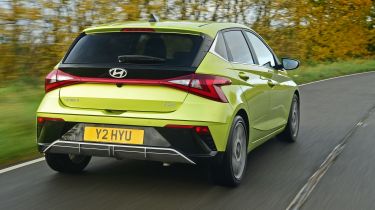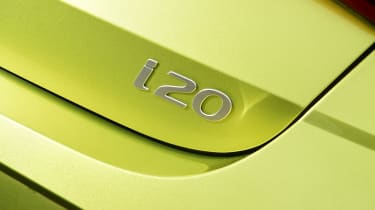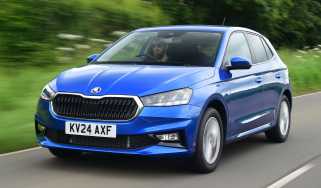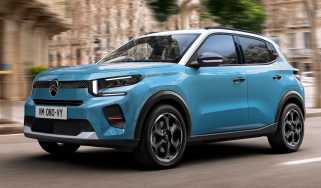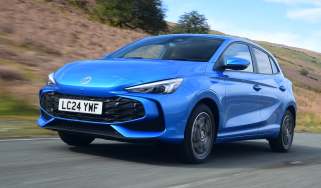Hyundai i20 hatchback - MPG, running costs & CO2
An efficient petrol engine and innovative technology reduce running costs
The pre-facelift Hyundai i20 was available with a choice of two engines, but since 2023 there’s just one option available, so you won’t have to spend a long time deciding. Thankfully, this 1.0-litre petrol engine is very economical to run, despite no longer being offered with mild-hybrid tech.
Hyundai i20 MPG & CO2
The 1.0-litre turbocharged petrol engine’s manual gearbox can decouple from the engine when your foot is off the accelerator, increasing fuel-efficiency by 3-4% by itself. When you lift off the throttle, a little boat icon appears on the instrument cluster with the word 'sailing' to tell you that the fuel-saving mode is engaged but otherwise the system operates entirely in the background and doesn’t make driving the i20 any more complicated than a regular clutch pedal.
It works because the i20 comes with a ‘drive-by-wire’ clutch, which means the traditional cable operation is replaced by electronics. When the driver presses the accelerator or brake pedal the engine restarts instantly in the same gear (unless vehicle speed is too low in which case it restarts in neutral leaving the driver to select a lower gear). It may sound complicated, but in reality the operation is so seamless you don’t even need to know it’s there.
More reviews
As well as this IMT (Intelligent Manual Transmission) manual gearbox, Hyundai offers a DCT twin-clutch automatic and the difference in fuel efficiency between the two is minimal.
Hyundai has also gone to significant efforts to make the i20 lighter, and together, all these measures give it an official figure of up to 53.2mpg for the manual model and 52.3mpg for the DCT automatic. The figures suggest that the auto might be slightly less efficient on motorway journeys but the difference really is slight. It's better to make your selection between the two units based on the price and the driving experience.
CO2 emissions of 120g/km for the manual and 122g/km for the automatic ensure it won't break the bank for company-car drivers paying Benefit-in-Kind tax, and it will cost owners the slightly discounted rate of VED because it’s classified as a hybrid.
Insurance groups
Insurance rankings for the latest Hyundai i20 start in group 12 out of 50, which is quite high for a supermini. The base Volkswagen Polo, which admittedly has nearly half the power, is in the lowest possible group, while other rivals such as the Skoda Fabia start in single-figure insurance groups. Top-spec Ultimate with the automatic gearbox is group 15.
Warranty
Hyundai scores here because while its five-year/unlimited-mileage warranty isn't quite class-leading (some rivals offer seven years of cover), we think it will satisfy most buyers while exceeding the length of most lease and finance deals. It also makes the three years of cover offered by the likes of Ford and Volkswagen look rather short.
Servicing
Hyundai offers fixed-price servicing plans that are well worth considering as part of the deal. Costing around £500 for three years and £1,000 for five years, they cover all routine maintenance and can be paid monthly, making the cost of ownership more predictable.

